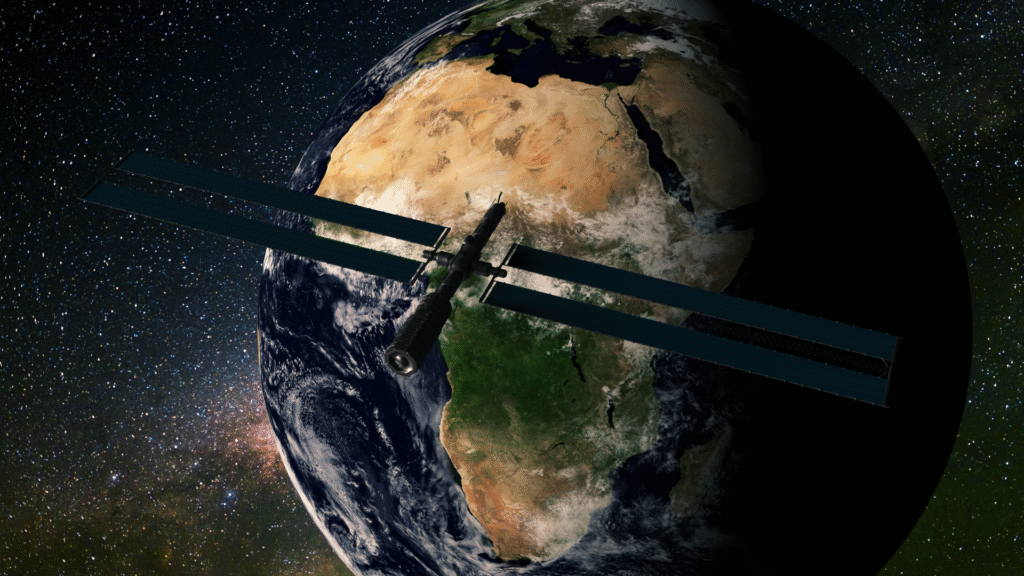

AfricaCom 2022 recently concluded. As the premier event for the telecoms industry in Africa, there were many key discussions on policy considerations for expanding connectivity, bridging the digital divide, and the allocation of spectrum. One essential component in all this is the role of the space sector, for satellites are an ever more appealing answer to some of Africa’s most challenging development goals.
The United Nations Office for Outer Space Affairs (UNOOSA), in collaboration with European Global Navigation Satellite System, developed a report on how satellite services can contribute to the SDGs. These include new developments, such as satellite IoT and communications, together with expanded functioning of traditional services like Earth observation and satellite navigation.
Connectivity
Due to its vast territories and expansive rural areas, reliable connectivity is a major challenge for African nations. Despite the prevalence of rural areas, most African countries have witnessed considerable growth in mobile wireless connectivity, with 77% of the continent’s population being under 3G coverage.[1] Expanding terrestrial infrastructure to these remote areas can be prohibitively costly, particularly for high-speed 4G or 5G connectivity. Satellite backhaul networks can thus provide access to Internet and mobile connectivity. NGSO satellites that can provide the backhaul are already in orbit, covering 99% of the world’s surface area. As no further launches are required, and owing to the expansive service area, a backhaul network can be established at a cost far below that of building terrestrial networks.
In 2020, Algeria applied its Alcomsat-1 satellite to simulate the set-up of an emergency communications network.[2] Satellite communications systems are indispensable during emergencies, especially in situations where the cause of the emergency disables terrestrial communications networks. Algeria is prone to flooding, which has previously caused loss of life, and has used its satellite network to map the damage caused by floods. Restoring communications facilities during disasters can mitigate loss of life and property.
Agriculture
Satellite IoT has a core function to play in increasing crop yield and contributing to ending hunger. Precision farming, which is farming based on data for informed decision-making targeting the precise needs of individual crops, depends on advanced IoT devices. Rural farmland where access to terrestrial network infrastructure is limited benefits the most from satellite IoT.
Komaza, a tree farming company in Kenya, has partnered with USAID in its bid to plant one billion trees across Africa by 2030[3] as a contribution to preventing global eco-system collapse[4] while providing a sustainable income source for the participating farmers. Komaza supports the farmers by using AI and satellite data through various apps to monitor tree development and ensure acceptable environmental and quality targets are met.
Industry
Sustainable development and industrialisation with a culture of innovation are essential in uplifting developing countries’ economies. Satellite NB-IoT terminals, connected in the hundreds or thousands to many different machine systems, can monitor a wide array of metrics. This data can be used to increase the efficiency of machinery or respond to faults before they occur.
Satellite IoT is already playing a leading role in logistics by decreasing costs and increasing efficiency. Satellite NB-IoT devices connected to trucks, freighters, and ferries can monitor vehicle and vessel movements, efficiency, and conditions.
Nigerian-based technology company BeepTool launched a satellite that integrates TV Whitespaces with Wi-Fi hotspots. The solution can use backhaul for connectivity without barriers to offering faster and cheaper connectivity solutions that provide connectivity to an entire village. The device is designed to work with the following satellite operators: NigComSat, SES, ViaSat, Telesat, Avanti, and Intelsat (on C/Ku, Ka, and S-Bands). It will also soon accept signals from SAS and OneWeb satellites. BeepTool is used by entrepreneurs and small business owners in rural and underserviced areas in Nigeria, enabling them to provide free Wi-Fi for their customers and ensuring they can communicate with their service providers.[5]
Opening space to innovation
The solutions to achieving sustainable development goals (SDGs) are not wholly within the hands of governments, and rather require collaboration with actors across the private sector, academia, and civil society. Universal meaningful connectivity in Africa is dependent on robust and affordable networks. The role of satellites in achieving this is clear. Governments looking to maximise the potential benefits of a digital economy should consider implementing transparent, fair, and affordable regulatory frameworks that are open to space innovators, including satellite operators.
